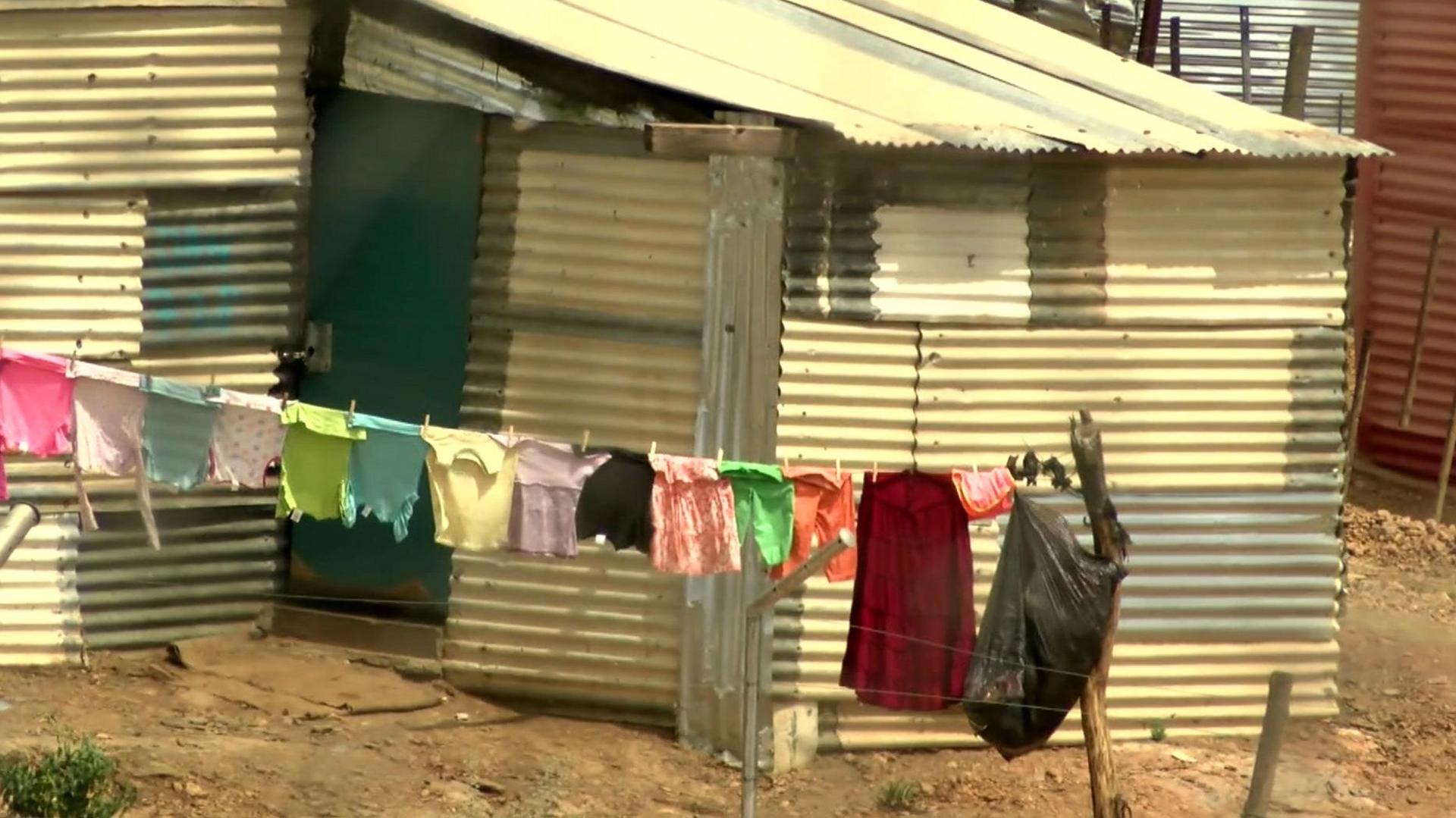Namibia's electronic election woos young voters
- Published
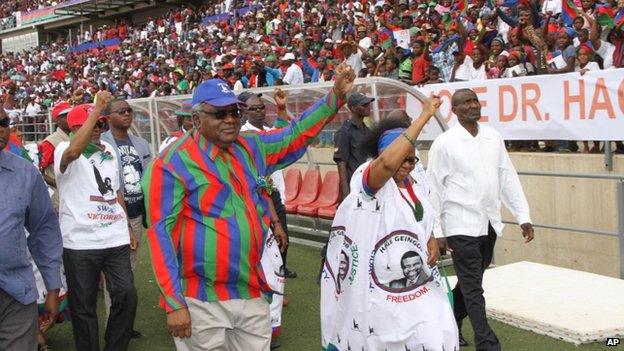
President Hifikepunye Pohamba (striped shirt) is not standing for re-election
Namibians go to the polls on 28 November to vote for a new president and parliament in the southern African country.
The electoral commission says nearly all eligible voters - about half of the population of 2.3 million people - have registered. Of these, almost half are under 35 years old. They will also be the first in Africa to cast their votes electronically.
About 20% of voters are from the "born-free" generation. They were born after independence in 1990, following the peace agreement that ended rule by South Africa's apartheid government, following an armed struggle led by the South West African People's Organisation (Swapo).
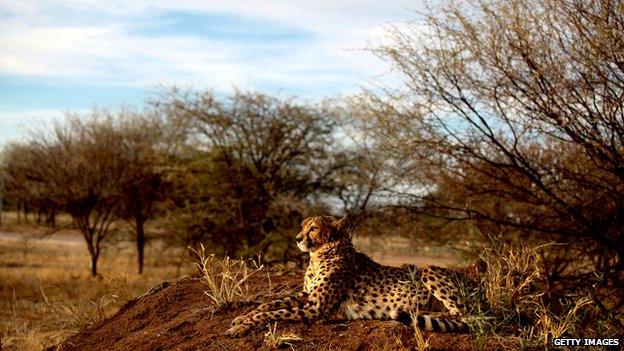
Namibia's extensive wildlife make it a popular tourist destination
Swapo has won all elections since independence, and its active youth wing takes seriously the task of engaging the younger generation. So the high proportion of young voters may not necessarily weigh against it, despite its long period in power.
President Hifikepunye Pohamba has already served the maximum two terms allowed by the constitution. Swapo's candidate this year is Prime Minister Hage Geingob.

Why does the opposition remain weak?
The growth in the opposition vote has been slow but steady, but its division between several parties works to Swapo's advantage. Swapo won over 70% of the votes in the last two elections, and opinion polls indicate that it will again win by a wide margin this year.
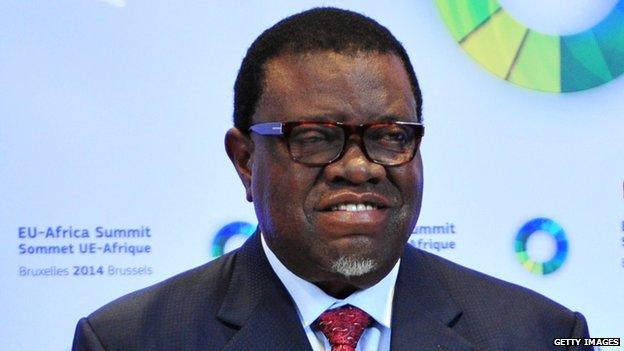
Current Prime Minister Hage Geingob is Swapo's presidential candidate
Swapo's liberation movement credentials play a significant role in securing party loyalty across age groups, but that loyalty has been eroding. The ruling party has a long record of addressing issues of social inequality, but opposition parties highlight accusations of land grabs and abuse of power by officials.
The Afrobarometer survey group, which assesses public attitudes in 35 African countries, says there is increasing acceptance of opposition parties in Namibia, against a background of public disenchantment over allegations of official cronyism and corruption.

Who are the leading candidates?
There are 16 parties contesting the parliamentary vote, and nine are fielding presidential candidates. Swapo's closest challenges this year come from the Rally for Democracy and Progress (RDP) and the Democratic Turnhalle Alliance (DTA).
Swapo's presidential candidate Hage Geingob is serving his second stint as prime minister. He was Namibia's first prime minister between 1990 and 2002, and worked earlier at the UN and in other posts in the Namibian government.
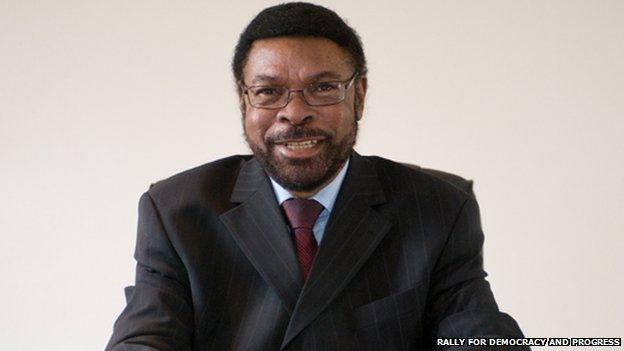
Hidipo Hamutenya quit the ruling party and formed his own
Hidipo Hamutenya, the 75-year-old leader of the official opposition, is the RDP's presidential candidate. He broke away from Swapo and launched the RDP in November 2007, standing unsuccessfully for the presidency in 2009. The RDP says it wants to root out corruption, and has called for an end to "jobs for the comrades".
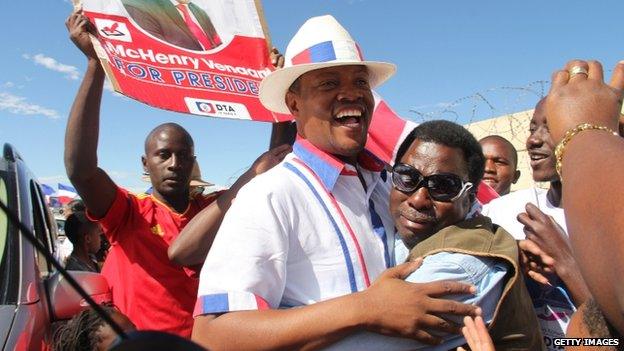
McHenry Venaani was Namibia's youngest ever MP upon his election
The DTA's candidate is 37-year old McHenry Venaani. He is the youngest of the candidates, and was the youngest ever MP on election in 2003. He joined the DTA Central Committee when he was 18. The DTA alliance is a grouping of smaller parties that has called for lower taxes, higher wages and leaner government.

How does the system work?
The president is elected for a five-year term, and a candidate must obtain more than 50% of the votes to win. If there is no clear winner, there is a run-off round until one candidate wins more than 50%.
In the bicameral parliament, 72 seats in the lower house are up for election on a party-list proportional basis. Six others are appointed by the president.
The 26 members of the National Council upper house are indirectly elected every six years.

What about electronic voting?
On election day the polling officer will verify voter cards on a device containing the national voters' roll. In the booth, the voter selects their party of choice by pressing a button on an electronic ballot unit. There are no paper ballots.
According to the electoral commission, this will speed up the counting process, allow faster verification of voters "and will immensely shorten the time voters have to spend in queues and inside the polling stations". There will be no spoilt or duplicate votes, the electoral commission said in a statement.
The commission believes results will be available 24 hours after voting. In the last election it took over a week for the results to be announced.
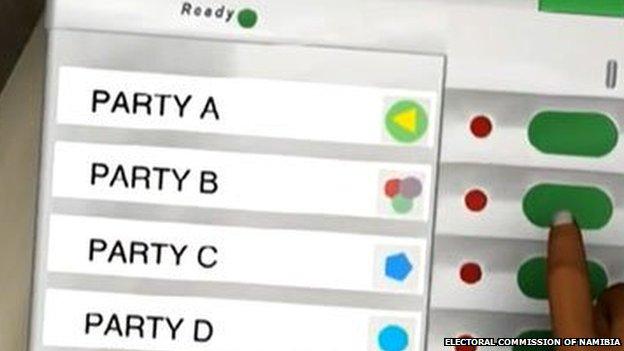
There will be no paper in the voting booth
Kenya also experimented with digital voting in 2013, using a biometric system for voter registration and electronic tallying for vote counting. But the system failed, and the country was forced to resort to counting by hand, further delaying the results.
Only two days before the elections, the High Court in Windhoek turned down a last-minute challenge by four opposition parties against the use of electronic voting machines They argued that the new voting system left room for rigging if there was no paper trail.

What are the main campaign issues?
All parties focus on the perennial land issue. Most parties agree that the redistribution of land since the end of apartheid has been too slow.
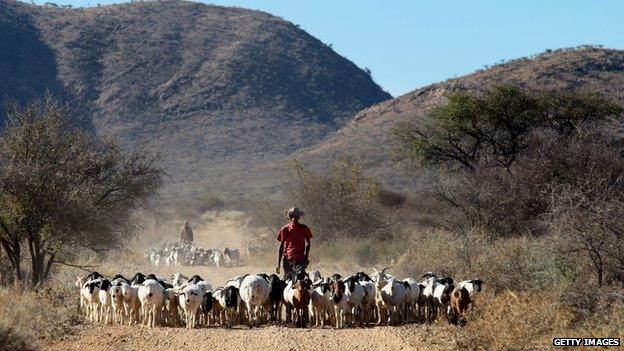
Land reform is a crucial issue for livestock farmers
Outspoken Swapo Party Youth League luminary Job Amupanda dramatically resigned in November, echoing opposition accusations that senior Swapo officials were selling land cheaply to relatives and friends. He said he would continue campaigning for equitable access to land, and remains a Swapo member.
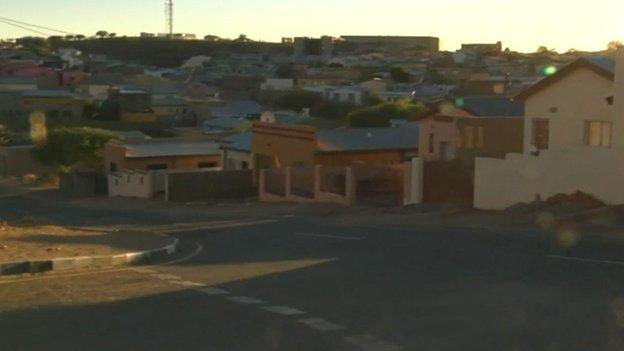
Rising house prices have led to the construction of unplanned developments
Namibia is a middle income country with a small population but a high unemployment rate. There is an acute housing crisis which has led to the development of illegal settlements. Young people in particular say they cannot afford to live in urban centres.
Education and access to healthcare are also prominent issues.
BBC Monitoring, external reports and analyses news from TV, radio, web and print media around the world. You can follow BBC Monitoring on Twitter, external and Facebook, external.
- Published10 December 2024
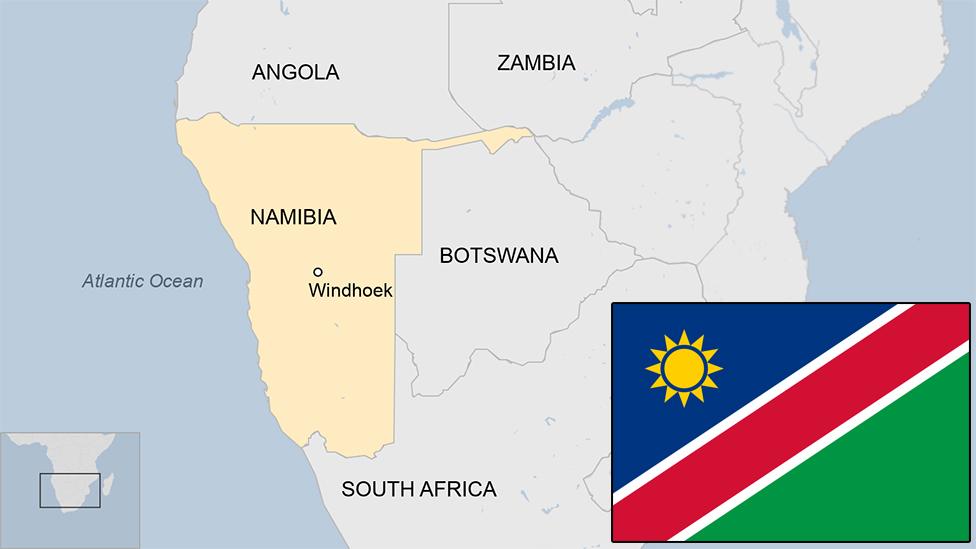
- Published24 October 2014
